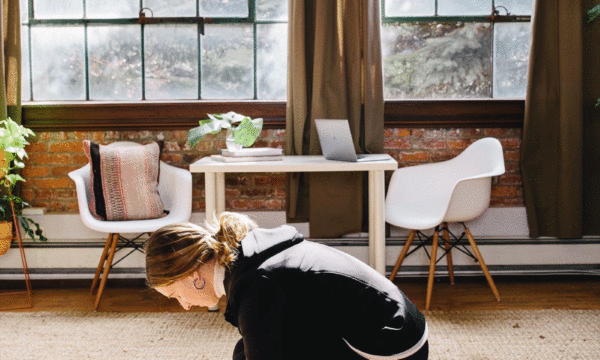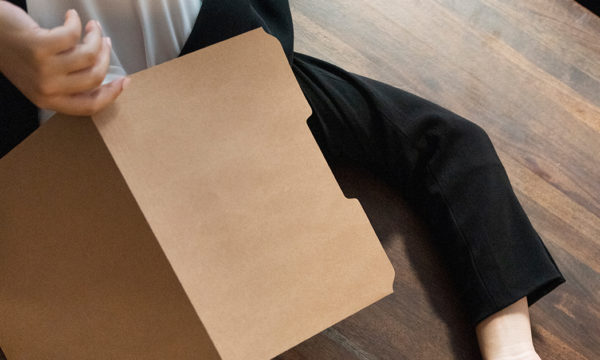
Shop This Look
6 Tips for Stopping Anxiety in Its Tracks
Even the coolest cucumbers are feeling uncertain right now. Below, we offer expert-approved techniques for taking control of your anxiety—and preventing its spread—during this nerve-wracking time.
As we watch the coronavirus crisis develop, it’s easy to become anxious—and to spread that anxiety to others. According to Jud Brewer, M.D., PhD, the director of research and innovation at the Brown University Mindfulness Center, anxiety itself is considered a social contagion. “Think of it as someone sneezing panic on your brain,” he says. “Each time you come into contact with someone who is anxious—and anxiety is even more contagious on social media, because each scroll is like being touched by someone—you are more likely to catch the panic bug.” And no one needs the panic bug right now.
Here are some expert-approved ways for taking control of your anxiety—and preventing its spread—during this nerve-wracking time.
Want more M Dash?
Sign up for our weekly newsletter.
Thank you!
Breathe into the day.
“In the morning, we might be waking up with a sense of anxiety or disequilibrium, or simply not feeling as grounded as we’re used to feeling,” Rosan Gomperts, director of Stanford’s Faculty Staff Help Center and licensed clinical social worker, told the Stanford Report. “At that moment, it’s important to remember that you’re okay, that you’re lying in your bed, and that nothing dangerous is happening to you at that moment.” She suggests doing a breathing exercise. “Breathe in for a count of three, then breathe out for a count of six. Taking just three or so breaths like this can really help lower our physiological response.”
Limit your news intake.
It’s tempting to leave the television on or check social media throughout the day so you don’t miss updates, but doing so can feed anxiety. Instead, “tune into credible news sources long enough to get the latest information, and switch channels,” said Eric First, M.D., FAIS, co-founder and Chief Scientific Officer of R3SET and Fellow of the American Institute of Stress. “I would avoid watching first thing in the morning and especially just before bed. I tune in mid-morning and early evening, and then tune out until the next day.”

Feel your feet.
Because so much of our anxiety right now is rooted in things we can’t control, it’s important to take a step back and focus on the things we can control. “Just like you manage everything else, you have to manage some of your sensory input, and ground yourself in the reality of our physical world,” says Girija Kaimal, EdD, associate professor of Creative Arts Therapies at Drexel University. She suggests asking yourself: What are things you can see? Smell? Taste? “These questions bring you back to reality and back to the moment, so that you’re not overwhelmed with uncertainty.” Another way to stay in the moment? “Feel your feet,” says Dr. Brewer. “[It’s a simple way to ground yourself] when your mind starts racing out of control.”
Carve out “worry time.”
Trying to suppress your anxiety altogether can backfire, so if you need to worry, do so in a contained way. Those who practice cognitive-behavioral therapy (CBT) swear by a tool called “worry time,” where you schedule time once a week (or once a day, if you’re a frequent worrier) to let your worries flow freely for 15-30 minutes. If you catch yourself worrying outside of that time block, stop and “save” your worries for later. This way, you can process your anxiety at designated times, without letting it take over your day.

Set yourself up for sleep.
Anxiety can be the enemy of sleep, but developing a nightly routine helps condition us for quality rest. “Sleep is a foundational bodily need that has a ripple effect in impacting all other mental and physical needs,” said Alyssa Petersel, L.M.S.W., the CEO of MyWellbeing, an app that matches users with therapists. She suggests nursing a cup of caffeine-free tea before bed, turning off electronics 30 minutes before you go to sleep, or reading fiction to take your mind off the news. Light a candle, use a fancy face cream, or dab some lavender oil on your temples. These little rituals create a transitional moment that signals to your body it’s time to shut down.
Remember: Your soul needs a schedule.
Since the days at home can get long and start to blend into one another, structure your time so every day feels manageable and balanced. “Have a little schedule where you factor in all these things: something to take care of your mind, your body, your soul, your spirit, and something that helps you feel creative and accomplished every day,” Dr. Kaimal said. “Think about things you love to do—cooking, art, exercise. Here’s the time to do them, even in a small way.”









